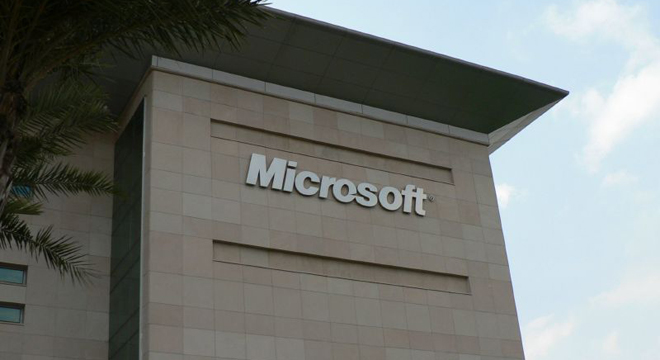By TOBY STERLING
AMSTERDAM (AP) — The European Union has fined Microsoft â¬561 million ($733 million) for breaking a pledge to offer personal computer users a choice of Internet browsers when they install the company’s flagship Windows operating system.
The penalty imposed by the EU’s executive arm, the Commission, is a first for Brussels: no company has ever failed to keep its end of a bargain with EU authorities before.
In 2009, Microsoft Corp. struck a broad settlement with the Commission to resolve disputes over Microsoft’s abuse of the dominance of Windows, which had spanned more than a decade.
The company agreed to pay â¬860 million and promised to give Windows users the option of choosing another browser rather than having Microsoft’s Internet Explorer automatically installed on their machines.
But Microsoft failed to stick to the deal for some 15 million installations of Windows 7 in Europe from May 2011 until July 2012. The company admitted the failure last year, adding that it was an oversight.
The Commission’s top regulator, Joaquin Almunia, said at a press conference in Brussels, Belgium, Wednesday that the fine reflected the size of the violation and the length of time it went on. It was also intended to make an example of Microsoft and deter other companies from doing same thing.
“A failure to comply is a very serious infringement that must be sanctioned accordingly,” he said.
Almunia has advocated negotiated settlements since he took office in 2010, saying competition issues are best resolved quickly. He says slapping big fines on companies years after the fact does little to help consumers.
But he said the whole point of a settlement is undermined when companies then don’t abide by its terms.
“They must do what they committed to do, or face the consequences,” he said.
Almunia conceded that the Commission had been “naive” in appointing Microsoft itself to oversee compliance with the agreement, and said the Commission won’t allow that in the future.
For its part, Microsoft was apologetic.
“We take full responsibility for the technical error that caused this problem and have apologized for it,” the company said in a statement. “We provided the Commission with a complete and candid assessment of the situation, and we have taken steps … to help avoid this mistake — or anything similar — in the future.”
The company is required to offer consumers a choice of browsers through 2014.
In all, Microsoft has now paid a grand total of â¬2.2 billion in fines to the Commission since 1998, when regulators opened their first investigation against the company. Some of those fines were for failing to obey the commission’s orders, but this is the first time a company has admitted to breaking a promise made to the EU regulator.
The competitive landscape has changed greatly in recent years, however. Tech companies are now often more concerned about Google Inc.’s dominance in Internet search technology, Facebook’s dominance in social networking, and Apple’s dominance in mobile phones and software than Microsoft’s Windows operating system, though it is still dominant on personal desktop computers.
Rival browsers such as Mozilla’s Firefox and Google’s Chrome have become popular, and software applications on mobile devices usually bypass browsers entirely.
In a sign of the times, Microsoft itself turned to the watchdog in 2012, asking it to investigate Google for anticompetitive practices.
Copyright 2013 The Associated Press.






